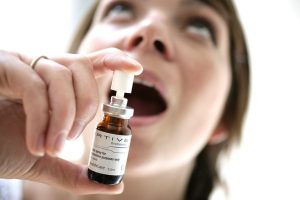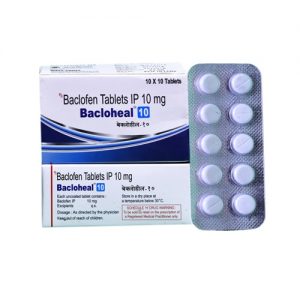What Medication Is Best For Marijuana Addiction Treatment
Certain medications have been used during an addiction treatment for marijuana. However, research strongly projects how these drugs are still considered experimental. So far, clinical studies have identified that these medications fail to work consistently among different individuals. It can be effective to some but not always to others.
There are no FDA-approved drugs for marijuana addiction treatment just yet. But addiction physicians give prescriptions for specific cases during treatment. Since marijuana induces psychological dependence more strongly than physical dependence, the best medication would be the one that is coupled with therapy.
What Medicines Are Used During Marijuana Addiction Treatment
 Some people perceive the use of marijuana as harmless because they do not experience physical side effects when using the drug. Little do they know how their brain function changes with excessive use. When a person uses marijuana daily or for several days a week, they become more vulnerable to the psychological impact of the substance.
Some people perceive the use of marijuana as harmless because they do not experience physical side effects when using the drug. Little do they know how their brain function changes with excessive use. When a person uses marijuana daily or for several days a week, they become more vulnerable to the psychological impact of the substance.
Common things to anticipate would be the constant cravings for marijuana which can negatively affect daily responsibilities in life. The experience of mental health problems such as anxiety and depression is also likely. Withdrawal symptoms that could be physically difficult to endure can also be experienced.
These are the usual factors that put an individual stuck in using marijuana. It is a given fact that numerous people attempt multiple times to move their life away from the substance but failed. If one is really determined to free themselves from the consequences of taking marijuana, then it is necessary to seek professional help.
Meanwhile, the following are the medicines that are commonly prescribed when a person enrolls in a medically assisted addiction treatment for marijuana.
Oral THC
 This is sought as the most promising medication for limiting withdrawal symptoms and reducing cravings for marijuana. However, further research is still necessary to prove how far it can be safely administered among patients. Also known as oral delta-9 tetrahydrocannabinol, this is marijuana taken orally for medical purposes.
This is sought as the most promising medication for limiting withdrawal symptoms and reducing cravings for marijuana. However, further research is still necessary to prove how far it can be safely administered among patients. Also known as oral delta-9 tetrahydrocannabinol, this is marijuana taken orally for medical purposes.
Some states in the US have already legalized the use of marijuana for medical functions. However, this remains a debatable concern since addiction experts continue to push the idea that this move could bring huge consequences to society in the long run. Studies have also proven how high levels of THC contribute to mental health and psychiatric disorders.
Oral THC comes with physical side effects particularly affecting the function of the cardiovascular system. It may lead to increased blood pressure and heart rate. It may also trigger anxiety and psychosis. Individuals under this treatment may also find themselves usually nauseous and prone to vomiting.
Cannabidiol (CBD)
CBD has multiple medical functions but it has been FDA-approved to be used for epilepsy syndromes, one that is typically not treated by popular antiseizure medications. It is also a chemical contained in cannabis and the second strongest to THC. However, unlike THC, CBD does not elicit an addictive factor, making it much safer to use for medical purposes.
Limited studies have found the potential of CBD to treat substance use disorder. It helps individuals fight off relapse for marijuana and patients in clinical studies have also shown a significant reduction in their cravings for the drug. While anxiety and insomnia are common withdrawal symptoms of marijuana, CBD also works effectively to alleviate these conditions.
However, further research is still necessary to ensure the safety of CBD in the use of treating addiction. There are no clear findings as to how far certain doses of CBD may safely affect patients involved in marijuana addiction. FDA even warned the public about the use of CBD as a health supplement since this may pose health risks in the long run.
Baclofen
 Baclofen is a common medicine used to treat addiction to substances that stimulate brain activity. It works by releasing neurotransmitters which reduce the ability of a person to feel high. The medication may pose health risks, however; physicians suggest that it can be safely administered with medical supervision.
Baclofen is a common medicine used to treat addiction to substances that stimulate brain activity. It works by releasing neurotransmitters which reduce the ability of a person to feel high. The medication may pose health risks, however; physicians suggest that it can be safely administered with medical supervision.
This medicine used for the treatment of marijuana addiction remains experimental. In one case study of a patient at the age of 40 who has suffered problems with his family and work due to the use of marijuana, Baclofen has played a great role in finally getting him to quit the use of marijuana and surpassing his undertakings with his family and at work.
It took 16 weeks of Baclofen treatment until the patient finally stopped using marijuana. However, this study remains limited. Although Baclofen is not a controlled drug, it poses serious withdrawal symptoms which can even be fatal. It must also not be prescribed to patients with diabetes, seizures, kidney problems, and mental health disorders.
Gabapentin
 Gabapentin which is used to treat seizures has also been used as an experimental medication for treating marijuana addiction. It has been identified as essential in detoxing from the substance by limiting the burden of withdrawal symptoms that can be experienced by users of marijuana.
Gabapentin which is used to treat seizures has also been used as an experimental medication for treating marijuana addiction. It has been identified as essential in detoxing from the substance by limiting the burden of withdrawal symptoms that can be experienced by users of marijuana.
In a clinical test conducted among 50 users of marijuana, patients have experienced a more comfortable withdrawal with the use of Gabapentin. It could also be a great factor to note that therapies have been done in conjunction with the medication. Significant results have been found among patients who have improved their cognitive level during treatment.
Further research is still necessary to measure the efficacy of using Gabapentin for the treatment of marijuana addiction. This is also another promising medication since patients have also controlled the occurrence of anxiety and depression during treatment. Despite this, Gabapentin’s addictive factor is another thing to consider during further studies.
Other medications
Some prescriptions are used to treat specific withdrawal symptoms of marijuana. Since insomnia and anxiety are common during withdrawal, physicians may prescribe patients sleep aids or anti-anxiety drugs. Vistaril is one common drug used to improve the quality of sleep of patients withdrawing from marijuana. It also helps them feel calmer and at peace.
Only get a prescription from a licensed doctor for your medication. Enrolling in inpatient treatment can be your best choice. Feel free to contact us with any questions about treating your marijuana addiction.
